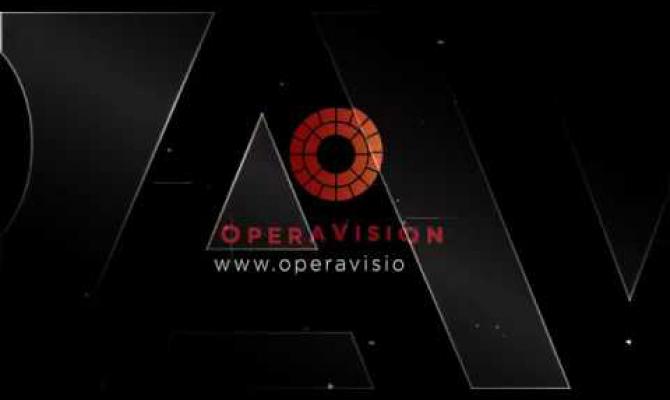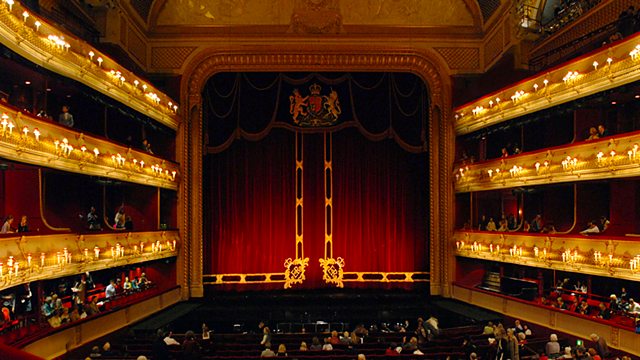- Gostinichnaya Programma Operator
- Gostinichnaya Programma Operations
- Gostinichnaya Programma Operators
- Gostinichnaya Programma Operating

Fresco logic FL2000 - VGA USB 3.0 a VGA steren driver win 10 Recently we found some crashes on Win10 anniversary update OS with certain inbox display driver, and found out that the WDDM architecture was updated from 2.0 to 2.1. Starting from version 2.0.33043.0, the complete support of WDDM2.1 is added. The Chorus of Dutch National Opera consists of 60 singers and was awarded with the title Best Opera Chorus by Opernwelt in 2016. From the start of the 2021/2022 season, Lorenzo Viotti will succeed Ching Lien Wu as the Chorus' chief conductor. Furthermore, since some operas require a much larger chorus - sometimes up to 90 or 100 singers - Dutch. Werqbig.netlify.com › ★ Gostinichnaya Programma Opera. 0.2 2013-12-06T10:27:59+00:00. Monthly 0.2 0.2. Opera offers rich opera programming where grandiose music.
If you want to test if the Opera browser is to your liking you should delete this copy and download the program from the official program developer. This way you. (Redirected from List of operas by Rossini) Edit; Read in another language; This is a list of the operas of the Italian composer Gioachino Rossini (1792–1868). The New Grove Dictionary of Opera, ed. Stanley Sadie, 4 vols. London: Macmillan Press.

If you have suddenly found a new program called and you are wondering what is opera Stable? What is Opera stable doing on your PC, how it got there and what exactly does it do. What is Opera stable?
The Opera browser is a perfectly legitimate internet browser developed by a company named OperaSoftware ASA and Opera Stable is the latest stable release of this browser. There is nothing malicious with the Opera browser. However the installation of Opera stable you have on your computer may or may not be legitimate. Opera is less popular than its three major competitors in the browser scene – Chrome, Mozilla and Internet Explorer.
To counteract that, Opera is often distributed as part of software bundles, through 3rd party programs and this leaves room for abuse from unscrupolous hackers. The fact that Opera stable was installed without your explicit permission or knowledge is worrying enough to raise the question what is Opera stable. It could be the real thing, or it could be an injected, modified.exe of the original program that works as a rootkit giving access to other, more dangerous viruses. It is also very likely that other programs were installed alongside Opera stable – likely Adware or Spyware. Drajver dlya swf 3s4t. Regarless of the cause you should probably remove it The thing with these randomly acquired programs is that you never know where the catch is until it is too late. If you want to test if the Opera browser is to your liking you should delete this copy and download the program from the official program developer. This way you will know for certain that the executable has not been tampered with.
If you have already tried to use the copy of Opera stable that is on your computer and you recieved search results from strange search engines then you should immediately remove it. (Opera default is Google, everything else means it’s a fake).

It is also possible that you are subjected to a much larger then normal amount of Advertisements while you browse – again this means you are running an Adware program designed to look as Opera. It is even possible that Opera stable is just a virus masquarading under the name of known and trusted software. • If you already tried to remove Opera stable through the control panel and it didn’t work or parts of it still remain then you are absolutely dealing with a virus. You will find the instructions how to remove the virus further below. • In conclusion we’d like to say it is hard to determine what is Opera stable for sure until we test the particular sample that you have installed on your machine. The most prudent course of action is to remove it immediately and then re-download it from the official Opera site if you are curious and looking for a browser alternative.
• Finally try to remember what caused Opera stable to appear in your computer. The most likely culprit is probably a program you have recently installed and that program is possibly infected with a virus. After you deal with Opera browser you will have to adress the program that installed it as well. Keep on reading.

NOTE: The following guide should be exhaustive enough to cover all aspects of whatever virus or adware has infected you. Opera Stable “Virus” Removal Guide SUMMARY: Name Opera Stable Type Potentially Unwanted malware. Tamil serial title songs mp3 download. Danger Level Medium. Symptoms Unwanted Ads and Toolbars, search engine redirects.
Distribution Method Software bundles, Email attachments, online Ads, infected torrent files. Detection Tool.
8 and 8.1 Users: Click the Start button,then Control Panel —> System and Security —> Administrative Tools —> System Configuration. Then check the Safe Boot option and click OK. C lick Restart in the new pop-up. Proceed to Step 2. For Windows 10 Users: • Open the Start menu. • Click the power button icon in the right corner of the new Start menu to show the power options menu. • Press and hold down the SHIFT key on the keyboard and click the Restart option while still holding down the SHIFT key. Windows 10 will perform the reboot.
- четверг 31 января
- 58
Opera is a secure, innovative browser used by millions around the world with a built-in ad blocker, free VPN, units converter, social messengers, battery saver and much more - all for your best browsing experience.
Microsoft visual foxpro. I have recently updated the Requests package for Python (I also installed WireShark around the same time, but I'm not sure if that's relevant). Since doing this, whenever I try and execute a Python file from the command line that imports the Requests library, I receive a pop up on screen stating 'Cannot locate the Microsoft Visual FoxPro support library'.
Gostinichnaya Programma Operator
Of the The words of an opera are known as the (literally 'small book'). Some composers, notably Wagner, have written their own libretti; others have worked in close collaboration with their librettists, e.g. Traditional opera, often referred to as ', consists of two modes of singing:, the plot-driving passages sung in a style designed to imitate and emphasize the inflections of speech, and (an 'air' or formal song) in which the characters express their emotions in a more structured melodic style. Vocal duets, trios and other ensembles often occur, and choruses are used to comment on the action. In some forms of opera, such as, and, the recitative is mostly replaced by spoken dialogue. Melodic or semi-melodic passages occurring in the midst of, or instead of, recitative, are also referred to as. The terminology of the various kinds of operatic voices is described in detail.
During both the Baroque and Classical periods, recitative could appear in two basic forms, each of which was accompanied by a different instrumental ensemble: secco (dry) recitative, sung with a free rhythm dictated by the accent of the words, accompanied only by, which was usually a and a cello; or accompagnato (also known as strumentato) in which the orchestra provided accompaniment. Over the 18th century, arias were increasingly accompanied by the orchestra. By the 19th century, accompagnato had gained the upper hand, the orchestra played a much bigger role, and Wagner revolutionized opera by abolishing almost all distinction between aria and recitative in his quest for what Wagner termed 'endless melody'.

Subsequent composers have tended to follow Wagner's example, though some, such as Stravinsky in his have bucked the trend. The changing role of the orchestra in opera is described in more detail. History [ ] Origins [ ]. The Italian word opera means 'work', both in the sense of the labour done and the result produced. The Italian word derives from the Latin opera, a singular noun meaning 'work' and also the plural of the noun. According to the, the Italian word was first used in the sense 'composition in which poetry, dance, and music are combined' in 1639; the first recorded English usage in this sense dates to 1648.
By was the earliest composition considered opera, as understood today. It was written around 1597, largely under the inspiration of an elite circle of literate who gathered as the '. Significantly, Dafne was an attempt to revive the classical, part of the wider revival of antiquity characteristic of the. The members of the Camerata considered that the 'chorus' parts of Greek dramas were originally sung, and possibly even the entire text of all roles; opera was thus conceived as a way of 'restoring' this situation. Dafne, however, is lost. A later work by Peri, dating from 1600, is the first opera score to have survived to the present day. The honour of being the first opera still to be regularly performed, however, goes to 's, composed for the court of in 1607.
Gostinichnaya Programma Operations
The Mantua court of the, employers of Monteverdi, played a significant role in the origin of opera employing not only court singers of the (till 1598), but also one of the first actual 'opera singers';. Italian opera [ ].
Gostinichnaya Programma Operators
(, 1747, ) Opera did not remain confined to court audiences for long. In 1637, the idea of a 'season' () of publicly attended operas supported by ticket sales emerged in. Monteverdi had moved to the city from Mantua and composed his last operas, and, for the Venetian theatre in the 1640s.
Gostinichnaya Programma Operating
His most important follower helped spread opera throughout Italy. In these early Baroque operas, broad comedy was blended with tragic elements in a mix that jarred some educated sensibilities, sparking the first of opera's many reform movements, sponsored by the, which came to be associated with the poet, whose helped crystallize the genre of, which became the leading form of Italian opera until the end of the 18th century. Once the Metastasian ideal had been firmly established, comedy in Baroque-era opera was reserved for what came to be called. Before such elements were forced out of opera seria, many libretti had featured a separately unfolding comic plot as sort of an 'opera-within-an-opera.' One reason for this was an attempt to attract members of the growing merchant class, newly wealthy, but still not as cultured as the nobility, to the public. These separate plots were almost immediately resurrected in a separately developing tradition that partly derived from the, a long-flourishing improvisatory stage tradition of Italy.